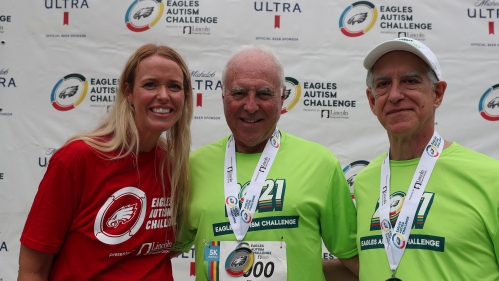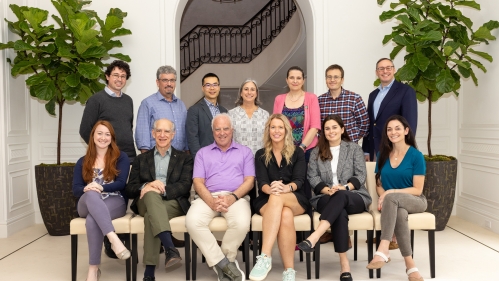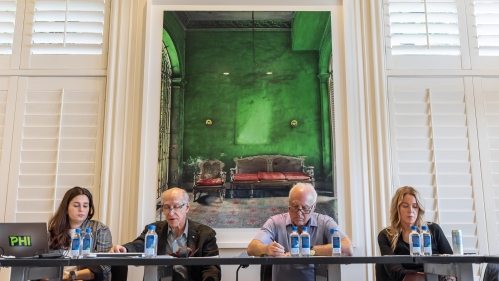Super Bowl-Bound Eagles Team Up With Rutgers Scientists to Direct Autism Research

Neuroscientist Emanuel DiCicco-Bloom doesn't watch football, but he’s a big fan of the Super Bowl-bound Philadelphia Eagles and its owner, Jeffrey Lurie.
Lurie recruited DiCicco-Bloom to be the scientific advisor of the Eagles Autism Foundation, a post that lets the Robert Wood Johnson Medical School professor help direct millions in research dollars toward understanding one of medicine's most prevalent neurodevelopmental conditions.
"Jeffrey is inspiring, has a deep respect for science and understands its challenges, which makes his foundation different from many other family-based non-profits," DiCicco-Bloom said.
DiCicco-Bloom, a professor of neuroscience and cell biology and pediatrics, brings considerable expertise to the role. He has chaired the National Institutes of Health’s Developmental Brain Disorders study section and serves on numerous scientific panels, including the Autism Science Foundation and American Brain Coalition. This background helped shape the foundation's distinctive approach after Lurie, whose brother has autism, launched it in 2017.
As fund-raising efforts have brought in increasing amounts of money, the foundation's grant program has grown from $2.4 million in 2018 to over $10 million today.

While other organizations focus on treatment and community programs, the Eagles spend 80% of their funding on basic science research. Through $400,000 grants, the foundation particularly targets early-career scientists and higher-risk research projects that might struggle to secure traditional National Institutes of Health funding. Current studies range from analyzing early behavioral markers of autism to investigating ion channels and fetal development and developing eye-tracking diagnostic tools.
Maria Chiara Manzini, an associate professor in DiCicco-Bloom's department at RWJMS, is among the recent grant recipients. Her lab combines human genetics with molecular and behavioral approaches to understand neurodevelopmental disorders, with recent work examining potential molecular mechanisms that make males more likely to develop autism.
"The idea is that by understanding what's happening in all these different genetic disorders and autism in particular, you can start trying to figure out if you can use the same drugs for multiple people," Manzini said.
The Eagles' commitment extends beyond funding. The team has created autism-friendly spaces at Lincoln Financial Field, including a sensory room that has become a model for other NFL teams. The Eagles also have partnered with businesses such as Wawa and First Trust Bank to create employment opportunities for individuals with autism.

The foundation's reach continues to increase. What began as a Philadelphia-focused initiative now accepts applications internationally, including recent expansion into Brazil, which allows DiCicco-Bloom and other grant evaluators to tap talented researchers throughout the world. Through the annual Eagles Autism Challenge event, the foundation has built a network of more than 27,000 international donors.
Most remarkably, thanks to Lurie's commitment to cover all administrative costs, 100% of donations go directly to research.
"I couldn't have imagined a more perfect position," DiCicco-Bloom said of his role, though he admitted with a laugh that even after years of involvement with the team, he still doesn't watch the games.



